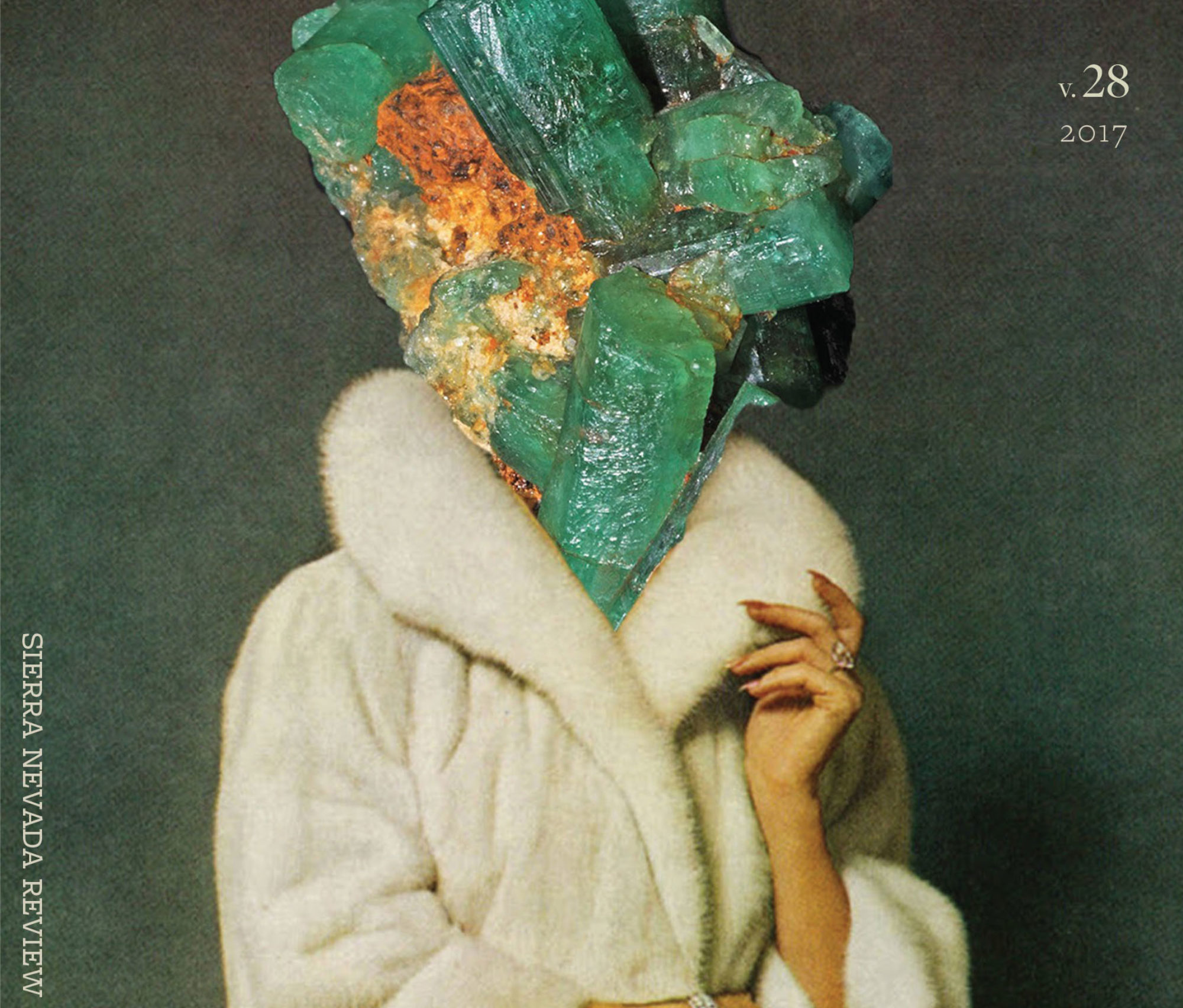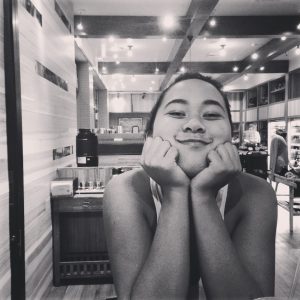We at the Review are just as excited as you are for the 2016 edition to hit the shelves! Get hyped for its release with a little interview with Brenna Womer, one of this year’s awesome contributors. Check out what Brenna has to say about writing inspirations, her piece “Frâiche” that we’ll be publishing, and which review is right for you.
What was the first experience with writing you had?
From a young age I had the desire to keep a journal and would go through phases where I’d commit to writing an entry every day. But I was inevitably dissatisfied with my inability to give adequate weight to my experiences, and often, I ended up tearing out the pages days later and ripping them into tiny pieces because I was embarrassed. Writing was stressful because I expected everything I wrote, every idea I had, to be spectacular. I quit writing for years, then picked it back up in college with fiction, and after a few semesters I learned it was okay to just get my ideas down, to play around with words and characters. When I took the pressure off myself, writing became fun.
What are some authors that you’ve read that have helped you to develop your writing style?
Raymond Carver’s Where I’m Calling From was the first collection of short stories I ever read and I was greatly influenced by his use of domestic settings and his masterful creation of tension between characters. My stories are very character-driven and I strive to write characters as complex and relationships as tumultuous as Carver’s.
The Girl in the Flammable Skirt will always be one of my favorite collections. I love Aimee Bender’s portrayal of characters, often women, during periods of disruption and adjustment. I also enjoy her discussion of female sexuality—what sex means to different characters and how they use it. These are themes I like to explore in my own writing.
In Junot Diaz’s book This is How You Lose Her—another of my favorites—not only am I immediately drawn in by the voice and his use of language, I admire the bold way he writes about class, race, sexuality, and masculinity. He consistently tackles difficult themes with honesty and authenticity, and his stories always leave me in awe.
**
What inspired your piece “Fraîche”?
“Fraîche” was actually born of a prompt in my graduate fiction workshop. Our assignment was to write a story using a borrowed form, and because eating is something I love so much I consider it a hobby, I thought I would try to write a story in the form of a menu.
What was your writing process for this piece?
Well, I began with the idea of a menu, and because I’m interested in relationships, periods of adjustment, and sex, I thought I would have the main character on a first date. I am a woman and I’ve been on dates, so it just felt natural to write this from a female’s perspective. I honestly didn’t even realize the story was in second person until I was finished and read back over it. I love to read second-person stories but haven’t written many myself, so I was relieved by how painlessly the point of view was established. I’d like to think second person helps alleviate some of the main character’s angst in this story because of the POV’s innately perceptive and instructional tone.
I didn’t have a strategy for weaving the menu items into the narrative, so I started looking through recipes for meal ideas. As I put the menu together, ingredients started sparking my own memories, so I decided I would write the story as a string of word associations and disjointed, worried thoughts as they might occur to someone on a first date as they read down a menu. It really was a fun piece to write!
**
Where’s the weirdest place you’ve ever written?
Oh goodness. The other day I had been revising a memoir piece at a coffee shop for about four hours when I finally made myself pack up and go. But I kept writing in my head and while I was driving home I had this idea for a sentence, so at a stoplight I opened up my laptop on the passenger seat and typed manically until the light turned green. Cops use laptops while they’re driving, so that makes it okay, right?
What advice do you have for aspiring writers?
As I touched on when I was telling about my journaling failures, putting pressure on yourself to be endlessly insightful and eloquent will do nothing but foster self-consciousness and frustration. Start with a prompt and see where it takes you. If there is a character you want to flesh out or a place you would like to describe but you don’t yet have a story they fit into, just write what you have. The notepad in my phone is filled with random ideas, notions, and mini character sketches I jot down while I’m at work or happy hour or eating dinner, and when I’m stuck on a story or looking for inspiration, I scroll through those notes. Also, it’s fun to look back at the notes and find the seed of a now 10-page story.
My biggest piece of advice, though, is to pay attention. Be nosy. Listen in on conversations, watch people, ask a lot of questions and be sure to listen to the answers, and if you are curious about something, don’t just let it flit by without pursuit.
How do you know the literary magazine you’re sending work to is the right fit?
Reading literary magazines is the best way to figure out whether you think they would like your style, and it’s also a great way to keep up with how the writing community is evolving. I’m very fortunate to be a part of the English Department at Missouri State University where the Creative Writing faculty is very focused on keeping up with what’s new and exciting in the writing world. And because they are, one of my professors decided we needed a literary magazine library. It is a great resource, and if I’m wondering whether or not my writing would fit with a particular publication, my first move is to run downstairs and see if we have their magazine.
If you don’t have access to the publication, at the very least you should be able to find something on their website, most likely under the submissions tab, that will give you an idea of what they like to publish. Our library didn’t have a copy of Sierra Nevada Review, but when I read on their website that they prefer work that is unconventional and experiments with form, I thought they might be interested in a flash piece in the form of a menu. And I’m so happy they were!
Be sure to pick up our 2016 copy this summer, and look for Brenna’s work in the poetry section!
Signing out,
H
Brenna Womer is a Creative Writing graduate student at Missouri State University where she teaches composition and serves as an Assistant Editor of Moon City Review. Her work is forthcoming in Grist’s Online Companion and the Sierra Nevada Review and has been published in NEAT. and Midwestern Gothic.
Hayden Takahashi is an English undergraduate student at Sierra Nevada College where she currently serves as an Assistant Editor with the Sierra Nevada Review.


